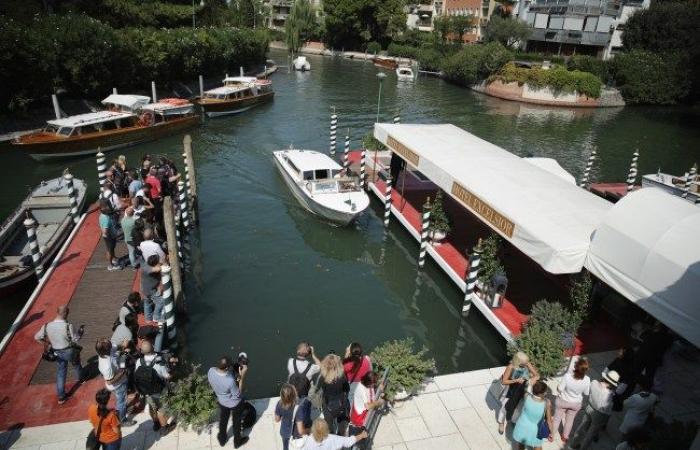Is it wrong to say something good came out of fascism? Probably. And it should be noted that Venice International Film Festival’s founder, Guiseppe Volpi, though a leading figure within Italy’s National Fascist Party, did ultimately oppose Benito Mussolini‘s government and the country’s alliance with Germany and Adolf Hitler. Nonetheless, his legacy is tainted as a result of this association, even with his and his family’s massive contributions to cinema.
The Venice International Film Festival began in 1932 as a result of Italy’s growing appreciation and interest in film. The Floating City had already played host to an arts festival known as Venice Biennale since 1893, so this film section was tied in and quickly overshadowed all other showcases. The actual event is held on the island of Lido rather than in the city’s central hub. This location was chosen in order to increase tourism following a decline as a result of the 1929 Wall Street Crash and the successive financial depression. At the first festival held, 40 films from six countries were shown to a crowd that included Winston Churchill, Henry Ford, Greta Garbo, and Clark Gable.
Initially, films were shown on the terrace and in the garden of the Hotel Excelsior, but by 1937, a main venue called the Palazzo del Cinema was opened and remains the festival’s home to this day. Though it was first built with just a great hall and one theater called La Sala Grande, which seats 1,032, it was expanded in 1952 to include the Pasinetti, which seats 119, and the Zorzi, which seats 48. Due to Italy’s fascist government requiring two awards be given for fascist and Nazi propaganda films in 1939, America boycotted the 1940 festival. Between 1940-1942, the only films shown were from countries loyal to the “Rome-Berlin” axis. Festivities were suspended entirely during 1943-45 as a result of WWII. Though events were held in 1946 and a historic showcase at Doge’s Palace in 1947, screenings didn’t return to the Palazzo del Cinema until 1948.
As Italy struggled in its post-war rebound, so too did the fest find difficulty in gaining a foothold, especially with Cannes Film Festival gaining prominence in France. Even so, during the 1950s, Venice helped Japanese and Indian cinema rise in popularity thanks to Akira Kurosawa‘s “Rashômon” winning the Golden Lion in 1951 and Satyajit Ray’s “Aparajito” winning in 1957. Between the ’60s and ’70s, social and political unrest had a rebound effect on the Venice Biennale. From 1969 to 1979, no awards were presented for fear of sparking conflict and in 1973, ’77, and ’78 no events were held at all.
In an effort to re-establish international prestige, in 1979, the festival’s director, Carlo Lizzani created an expert committee to source selections and increase the diversity of work put on display. As a result, the festival flourished, helping to expand the appreciation of New German Cinema throughout the 1980s, as well create a foundation for more commercial films like Steven Spielberg’s “Raiders of the Lost Ark” and “E.T.” to gain global appeal. The ’90s increased the popularity of the festival with Career Achievement awards presented to huge stars like Al Pacino and Robert De Niro. During this time, Venice also helped reignite the career of Robert Altman and placed future “Lord of the Rings” filmmaker Peter Jackson on the world stage for the first time.
In recent years, under the leadership of Alberto Barbera, who directed the festival between 1998 and 2002 and now since 2011, Venice has become a launchpad for Oscar contenders, hosting the premieres of award-winning films such as “Gravity” (2013), “Spotlight” (2015), “The Shape of Water” (2017), “Roma” (2018), and “Poor Things” (2023).
Lido itself has also served as the setting for many films including Luchino Visconti’s 1971 adaptation of Thomas Mann’s novella, “Death in Venice,” as well as parts of Anthony Minghella’s Best Picture-winning historical drama “The English Patient” and even the James Bond film “Moonraker.”






